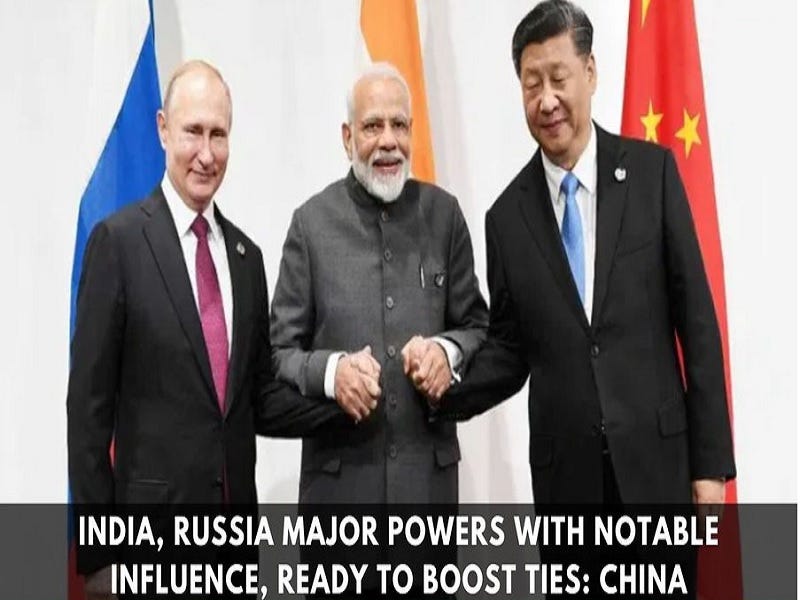Don’t Read Too Deeply Into China’s Desire To Trilaterally Cooperate With Russia & India
The Alt-Media Community is hyped up with wishful thinking hopes about the evolving world order as a result of the Chinese-mediated Iranian-Saudi rapprochement, President Xi’s recent trip to Moscow, and Russia recently reminding everyone of BRICS’ new currency project. These sequential multipolar developments combined to supercharge folks’ aforesaid expectations, hence why they’re inclined to misinterpret China’s purely perfunctory policy reaffirmation.
Chinese Foreign Ministry spokeswoman Mao Ning said that her country is “ready to strengthen communication with the international community including Russia and India” in response to Moscow’s new foreign policy concept encouraging closer cooperation between those three via the RIC platform. This was a pragmatic statement that aligns with China’s official policies, namely the expansion of ties with fellow BRICS and SCO members like those two, but observers shouldn’t read too deeply into it.
The Alt-Media Community (AMC) is hyped up with wishful thinking hopes about the evolving world order as a result of the Chinese-mediated Iranian-Saudi rapprochement, President Xi’s recent trip to Moscow, and Russia recently reminding everyone of BRICS’ new currency project. These sequential multipolar developments combined to supercharge folks’ aforesaid expectations, hence why they’re inclined to misinterpret China’s latest policy statement.
Far from implying the creation of a Eurasian bloc aligned against the declining American hegemon, Mao simply signaled China’s intention to pragmatically cooperate with India on issues of mutual interest together with their shared Russian partner through RIC. The reality is that Sino-Indo relations remain tense due to their unresolved border dispute, the continued existence of which impedes the improvement of their ties according to Indian External Affairs Minister Dr. Subrahmanyam Jaishankar.
China is concerned that third parties like the US will meddle in this sensitive issue, especially since its origins are connected to the lingering legacy of British imperialism in the Subcontinent, though Delhi has proven its strategic autonomy over the past year in the face of Western pressure to dump Moscow. Nevertheless, the People’s Republic won’t ever pass up an opportunity to promote its official policy of pragmatically cooperating with all countries, hence why Mao repeated it upon being prompted.
The AMC’s assessments of international events and statements would be much more accurate if its leading influencers acknowledged that some serious differences exist among non-Western countries instead of clinging to the dogmatic belief that they’re all united in opposition to the declining American hegemon. China and India both practice multipolar grand strategies, but they’re promulgating them differently, though they’ll still cooperate on issues of mutual interest whenever their interests align.
Their unresolved border dispute doesn’t doom their ties to the trajectory of inevitable conventional conflict, nor does its existence in and of itself mean that the US’ divide-and-rule meddling schemes will succeed, but it’s still a very serious problem that deserves to be candidly discussed. The AMC should at the very least make passing reference to it whenever its members comment on the future of Sino-Indo relations in order to avoid giving casual observers the false impression that bilateral ties are solid.
Circling back to the news item that inspired the present piece, it’s for this reason why nobody should read too deeply into China’s desire to trilaterally cooperate with Russia and India, which was just a perfunctory policy reaffirmation shared in response to its Foreign Ministry spokeswoman being asked to comment on the related part of Moscow’s new foreign policy concept. The RIC triangle is a promising platform, but its effectiveness will remain limited by the unresolved Sino-Indo border dispute.


